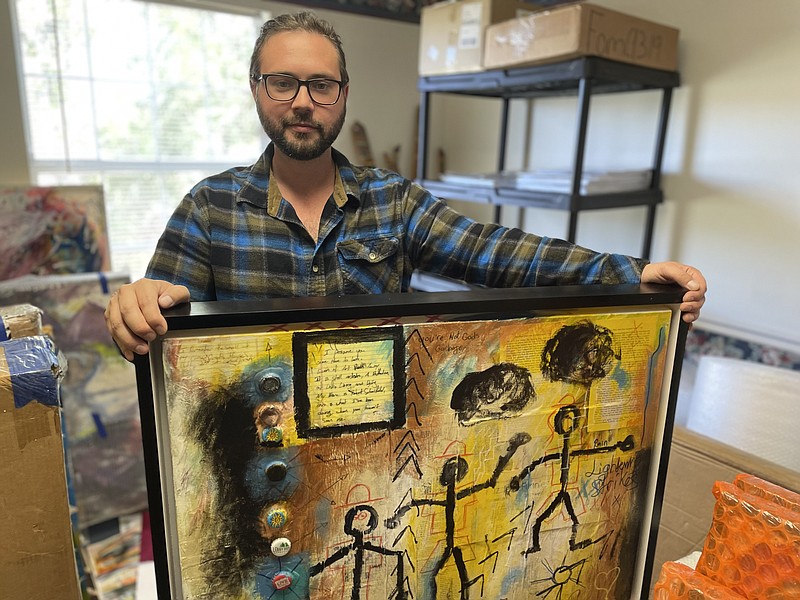Ten years ago, it would have been hard for 32-year-old Robert Schoolfield to imagine the settled life he has today. Steady work. Cozy apartment on Lee Highway. An emerging art career. A girlfriend he has known since elementary school.
Ten years ago, Schoolfield says he was in the throes of mental illness, which was variously diagnosed as psychosis, depression and bipolar disorder.
"In my early 20s, I started to have a lot of mental problems and lot of depression," he said in an interview last week. "I started having psychotic breakdowns occasionally."
Today, Schoolfield is a certified peer recovery specialist providing aftercare to clients who have been through programs at Volunteer Behavioral Health Care System in Chattanooga. Research shows mental health patients do better if they have assistance from people with a personal history of recovery.
Schoolfield said that sometimes his psychotic episodes as a younger man included a break with reality. Drugs were in the picture, too, he said, but mostly as a byproduct of his mental health issues, not a trigger, he said.
As a result, Schoolfield said he spent 10 stints in inpatient mental health facilities from ages 20 to 27. But the last five years, he has been stable, he said, which he attributes to fine-tuned medications and counseling mixed with a lot of self-care.
"I remember the last time I was an inpatient, I didn't think I was going to get better; to be able to work or drive a car or anything," Schoolfield said. "I remember having a thought that, 'I'm going to try to do better no matter what, even if I fail.'
"I (had been) avoiding what I knew I should be doing in my own heart, in my own mind. A lot of that was from being young ... being lost, not having a purpose or goal."
Fortified by that burst of resolve, Schoolfield began to rebuild his life. Part of it was a mental shift to take more adult responsibility, he said. He started taking his meds regularly and used art as an alternative language to express his feelings.
"I had to be OK with abandoning who I thought I was, to discover who I really am," he said.
Schoolfield credits his early interest in art to his grandmother, Joanne Schoolfield, who is the daughter-in-law of the late Judge Raulston Schoolfield, one of Chattanooga's most prominent 20th-century lawyers and judges.
In elementary school, Robert Schoolfield was diagnosed with Hodgkins lymphoma, a form of cancer, and spent a year recovering while visiting St. Jude's Children's Research Hospital in Memphis for treatment, he said.
His mental health issues, he said, intensified in his 20s and continued until about 2017, when his condition stabilized.
Schoolfield said his job helping others in recovery involves meeting one-on-one with about 15 clients weekly, a task that often takes him to neighboring counties. Some of his clients are homeless, he said, some are young people and some are adults with jobs and careers.
Occasionally, he integrates his artwork with his peer support work. His mixed-media, abstract creations are often an expression of his inner feelings, he said. His paintings have also become a source of income. One day, Schoolfield said he hopes painting might become his full-time career.
(READ MORE: New 988 hotline provides immediate help for mental health crises)
"It gives me a sense of purpose," he said. "It makes me feel like I am good at something. It gives me a sense of confidence."
Meanwhile, he is also proud of the totality of his his life experiences, he said, including his tumultuous 20s.
"I would not want to go through it again, but I wouldn't want to change it," he said. "I think I'm better as a human for having gone through that stuff. I don't pity myself."
The Life Stories column publishes on Mondays. Contact Mark Kennedy at mkennedy@timesfreepress.com or 423-757-6645.
